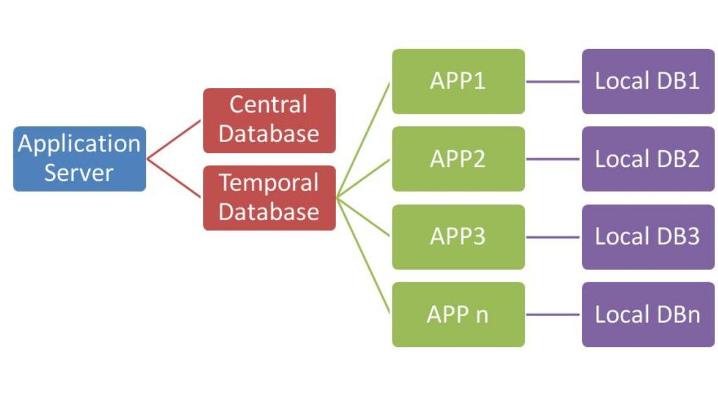Pile (abstract data type)
 From HandWiki - Reading time: 2 min
From HandWiki - Reading time: 2 min
In computer science, a pile is an abstract data type for storing data in a loosely ordered way. There are two different usages of the term; one refers to an ordered double-ended queue, the other to an improved heap.
Ordered double-ended queue
The first version combines the properties of the double-ended queue (deque) and a priority queue and may be described as an ordered deque.
An item may be added to the head of the list if the new item is valued less than or equal to the current head or to the tail of the list if the new item is greater than or equal to the current tail. Elements may be removed from both the head and the tail.[1]
Piles of this kind are used in the "UnShuffle sort" sorting algorithm.
Improved heap
The second version is a subject of patents[2][3] and improves the heap data structure.
The whole data pile based system can be generalized as shown:
References
- ↑ Art S. Kagel, xlinux.nist.gov; "pile", in Dictionary of Algorithms and Data Structures [online], Paul E. Black, ed., National Institute of Standards and Technology, assessed September 27, 2007.
- ↑ "Data structure and method for sorting using heap-supernodes", U.S. patent 728147 (2000, issued 2005)
- ↑ "Data structure and method for pipeline heap-sorting", U.S. patent 09727534 (2000, issued 2006)
 |
 KSF
KSF
